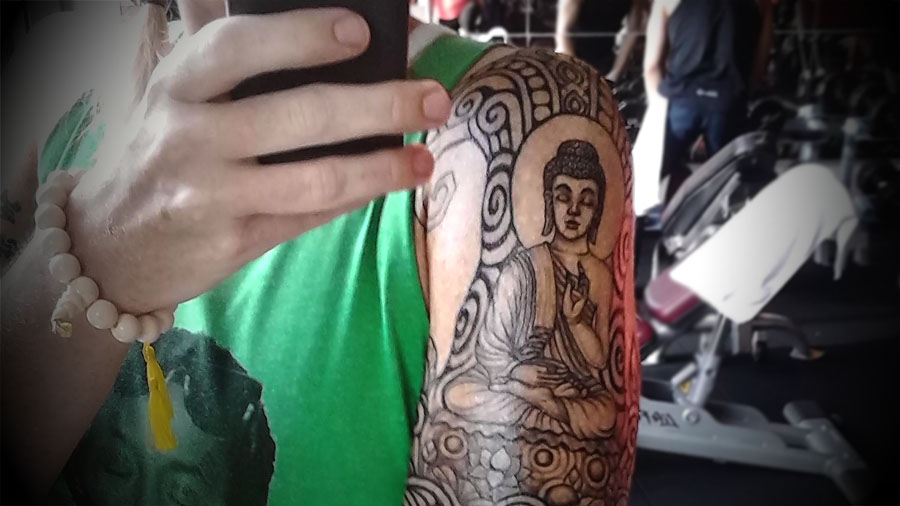A few years ago, I sublet an apartment from an American in Bangkok who decked out her place with typical Asian kitsch: elephant footstools, folding screens, lacquer teacups, and paper umbrellas filled every corner. She also had a blue plastic Buddha on top of the toilet paper dispenser in the bathroom. My boyfriend dubbed it the “poo-da.”
Had the police come by to use her facilities, she could have gone to jail.
Breaking Section 206 of Thai law, which covers insulting or defaming a religion, can be punishable by up to seven years in jail, a fine as high as THB14,000 (US$443), or both.
It’s also incredibly offensive to many Thais, including the volunteers that run Knowing Buddha, the organization responsible for the oft-photographed billboards near the airport denouncing Buddha decor and tattoos.
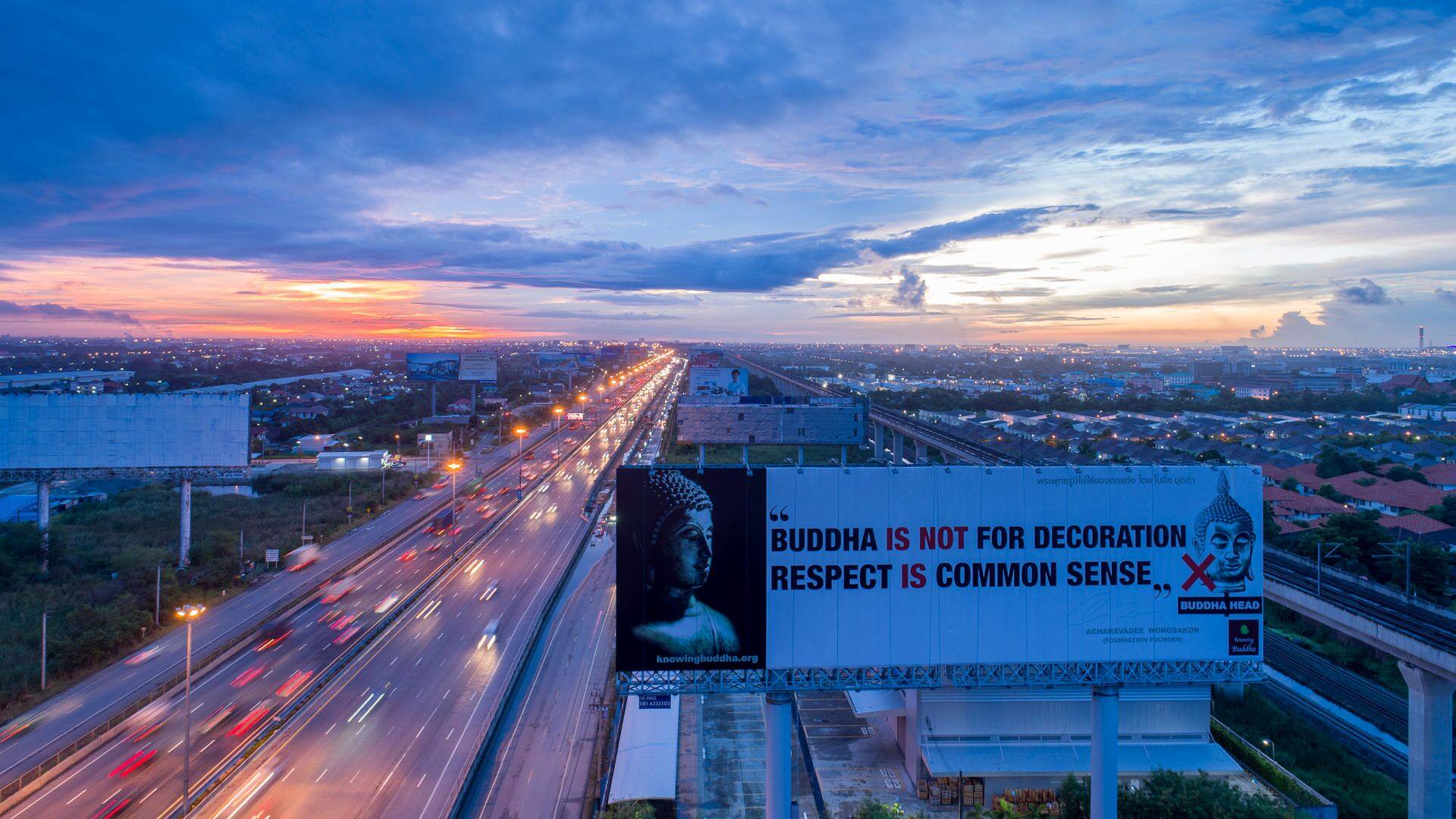
The Buddha’s sacred image is worshipped by followers around the world, but it’s also routinely co-opted as a “cool” decoration, tattoo, or bar theme by non-followers. For them, it represents peace, letting go, memories of traveling in Asia — or absolutely nothing at all.
In late 2017, two Americans made international news (and were nearly charged with defaming a religion) after they dropped their pants and shot photos of their butts at Buddhist temple Wat Arun. They were later deported after paying a stiff fine.
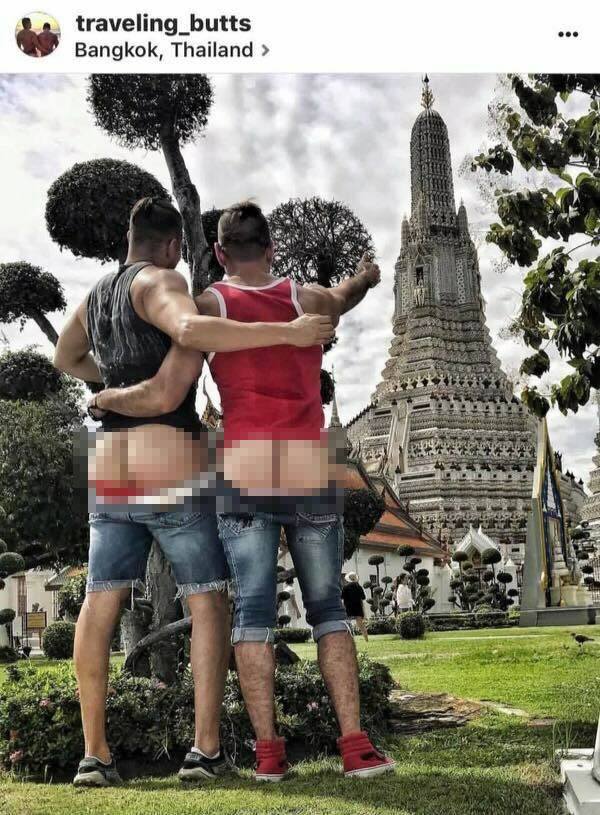
Earlier in the year, a resort in Koh Samui had to remove a Buddha head from the beach when locals were enraged by foreigners drinking and wearing skimpy swimwear near the icon. In Chiang Mai, meanwhile, a couple was forced to remove a string of decorative Buddha heads from around their property when their choice of decor shocked the neighbors.
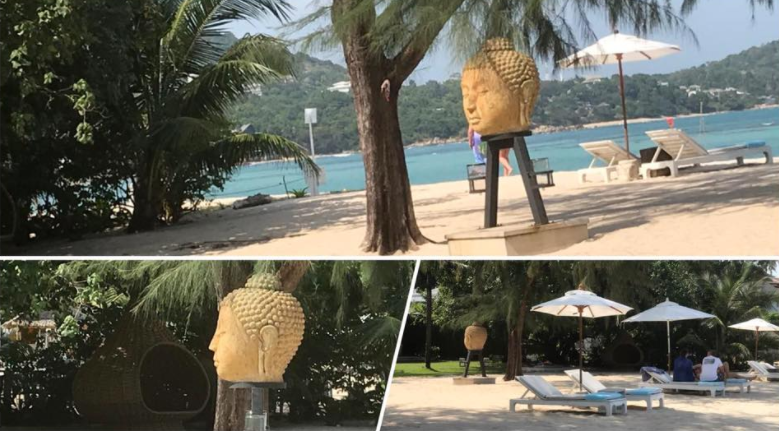
Buddha on the Body
Last year, an Englishwoman visiting Sri Lanka was briefly jailed over the large Buddha tattoo on her arm.
She hardly represents an isolated case.
In Thailand, travelers in elephant pants and Chang beer tank tops often sport Buddha tattoos to finish off their ensembles. In the markets, you can get a fake Buddha tattoo or simply purchase the deity’s image on everything from coffee mugs to keychains.
The sellers don’t want to be asked about their merchandise, shooing questions away with various versions of: “I just need to make money selling products.”
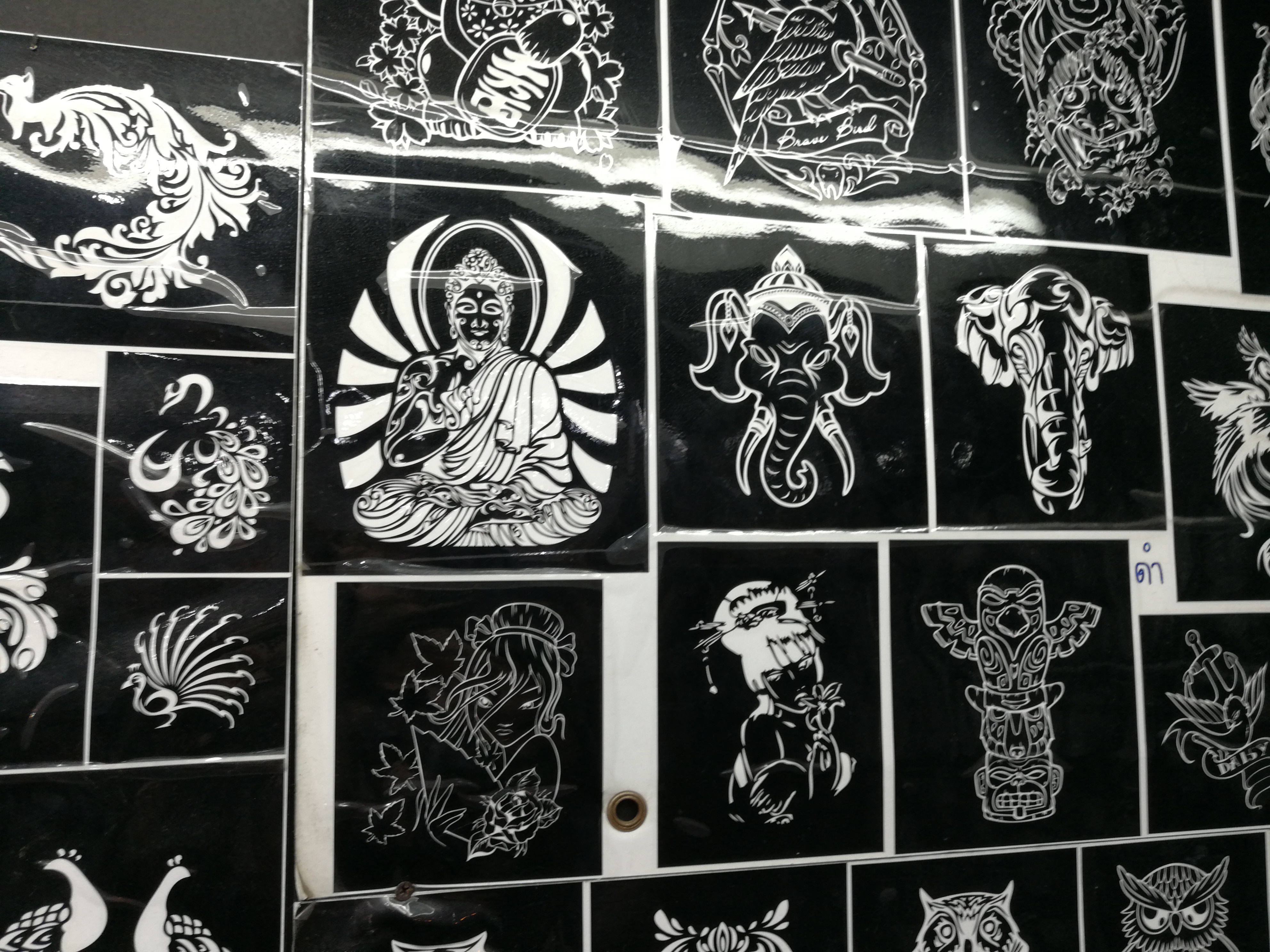
American Marie Martin, who used to live in Bangkok, got her Buddha tattoo as a way to commemorate her time in Thailand.
“I got the tattoo when I lived in Bangkok by the cutest little Thai guy near Khao San,” she told Coconuts Bangkok in a recent interview about her body art. “I found him by looking online for different artists and his work was very original and different.”
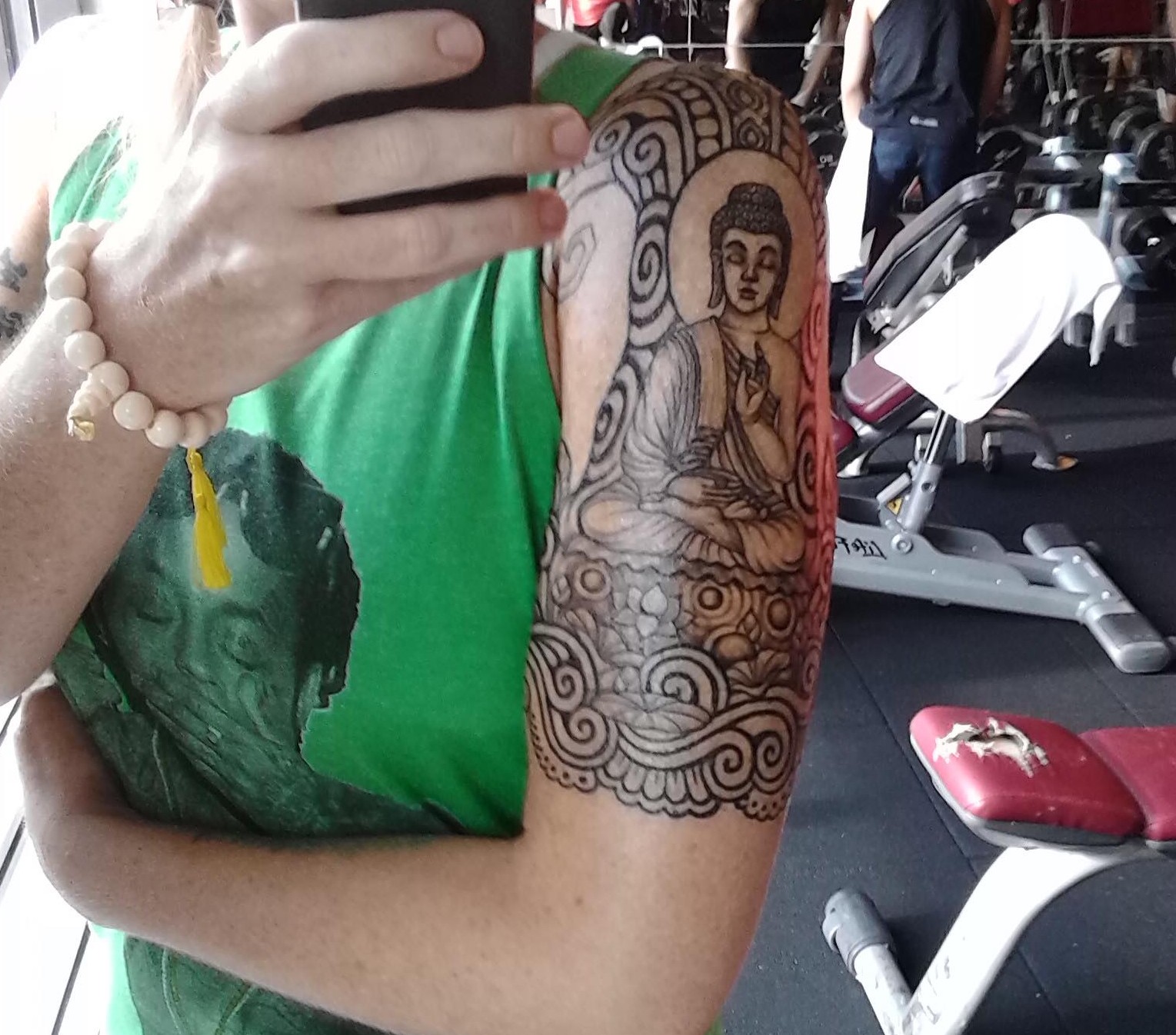
When she got the tat about five years ago — an image she says brings her “peace and calm” — Martin says she had not seen the signs or campaigns about Buddha tattoos being negative. She’s seen them since, but questions whether it’s as offensive as it’s made out to be.
“I have several Thai friends, so I asked their opinion and they were not offended and did not see anything wrong with it,” she said. “But who knows, maybe they were just being nice.”
Pattadon Sangduen, an assistant director at Knowing Buddha, disagrees with the sorts of rationales offered by Martin.
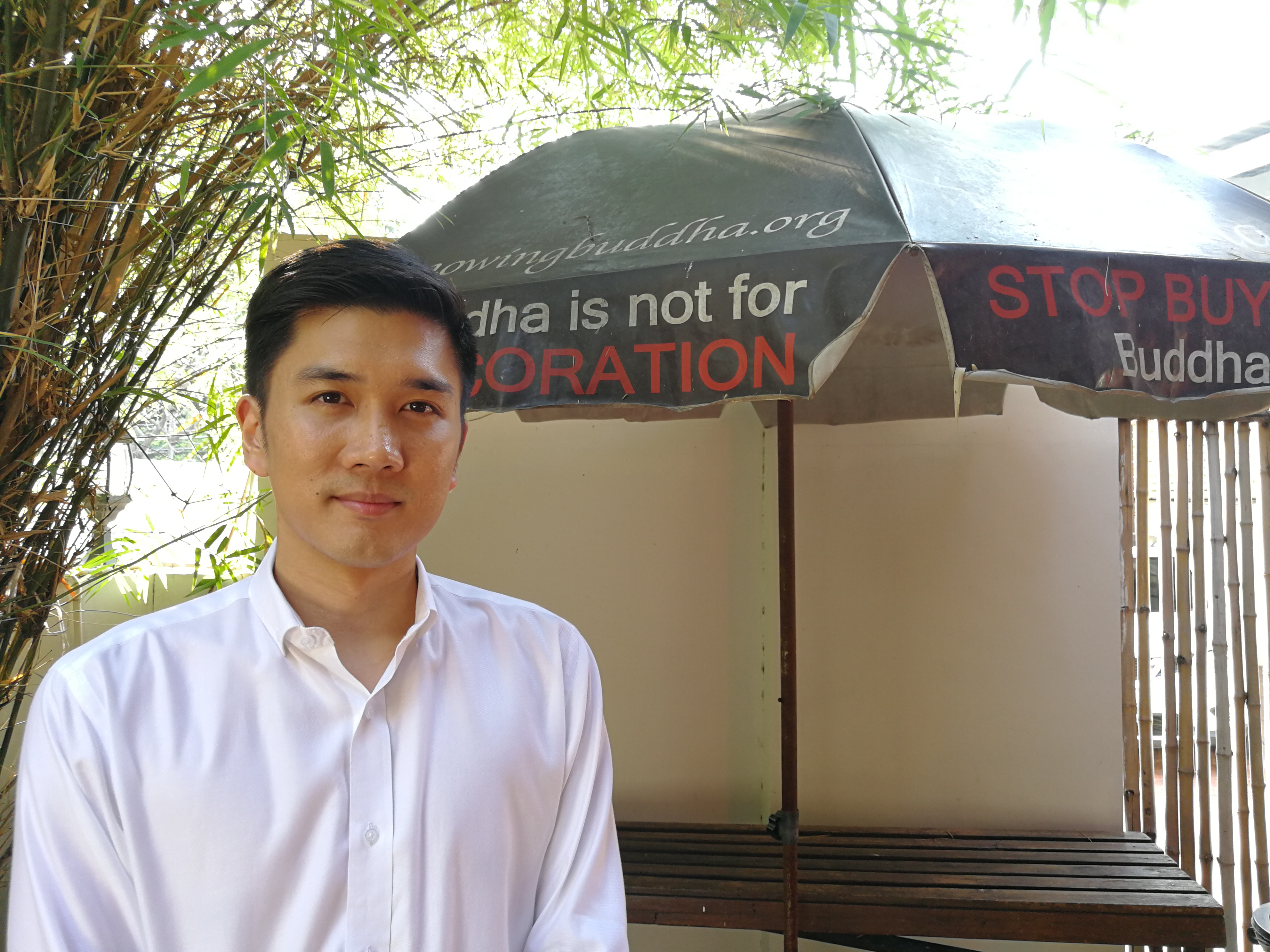
“Admiration of Buddha brought you to get a tattoo, but you end up bringing him many places he should not go. By Buddha’s teachings, the body is dirty and unclean. You don’t mix purity with dirtiness,” he explained. “You engage in sexual activity, go to the toilet, drink, party, fight, swear, and you have Buddha with you always. The body is impermanent but Buddha is permanent enlightenment, when you tattoo him, his image will rot in the ground with you.”
Knowing Buddha is a six-year-old organization that boasts 20,000 members in 25 countries and is funded completely by donations from individuals. The donations pay for those billboards by the airport — as well as in Phuket, Chiang Mai, and downtown Bangkok — and, as Pattadon assured me, “they aren’t cheap.”

On a recent afternoon in their Ekkamai meditation school, Pattadon said that the organization’s founder, Achravadee Wongsakon, was not always inclined to stand up for Buddha images. Her epiphany on the matter came a few years ago in Paris when she passed by a nightclub called Buddha Bar.
She realized that it’s wrong to use Buddha to get attention. In her opinion, it went against everything Buddha taught, to use his image to promote drinking and partying.
“We teach the correct way to treat Buddha’s image. He’s not a cool or very chill person, but his image and what it represents reminds us of his sacrifice and compassion, like a king or national flag,” said Pattadon.
A video made by Knowing Buddha to share their point of view:
His organization fights against the sale of products such as swimwear, flip-flops, rugs, beer bottles, and toilet seats that feature the Buddha’s image. Other products they take issue with are the disconnected parts of Buddha that you see in many spas and homes: Buddha hands, heads, feet, and more.
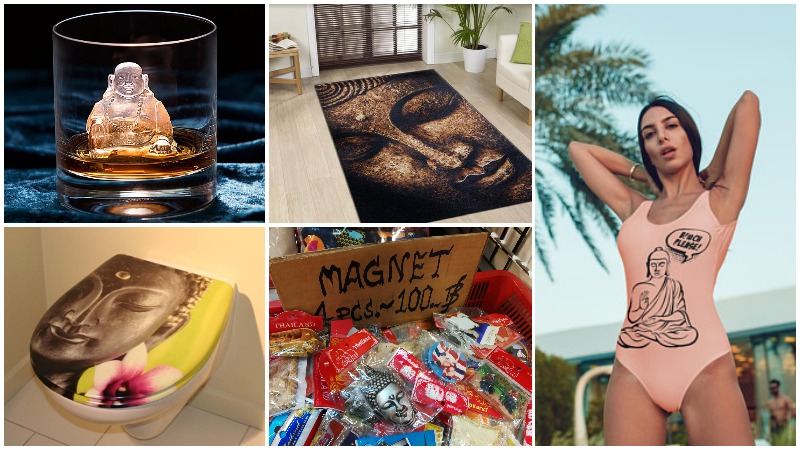
“When you are overwhelmed by something, as Buddhists are by Buddha, you would not cut that image into pieces. The same thing applies,” Pattadon said. “A cut-off head or hands is always wrong, it’s like cutting your national flag into pieces or cutting up a photo of a deceased loved one.”
If your purpose in buying a Buddha item is just to decorate or make your house feel more cozy, that is wrong, according to the organization.
It’s especially offensive to put those items on or near the floor, Pattadon explains, saying that they should always be placed at the highest level in a home, as is generally the case with Buddhist altars in houses and businesses.
Though some argue that one of the main tenets of Buddhism in non-attachment and that the organization’s preoccupation with the Buddha image could be seen as just that, Pattadon has a quick anecdote and reply.
“A Dutch ambassador once asked our founder, ‘There are many vital problems in the world: poverty, starvation, violence. Why don’t you choose to fix or correct those?’ She replied, ‘Every problem in the world starts with the wrong mind, if you can correct that, the problem at the core, you can solve every problem.’ That’s why we stand up for this. Our objective is not just to protect Buddhism but to bring back the morality of mankind.”
Symbolic or Sacred?
Whether or not you buy Pattadon’s argument boils down to one simple question: Does the Buddha’s image itself hold intrinsic spiritual value?
Kritthee Visitkitjakarn says it doesn’t. He is a Thai with — wait for it — a Jesus tattoo on the side of his stomach, Kritthee says his outlier status as a devout Christian gives him a unique view on Thai society.
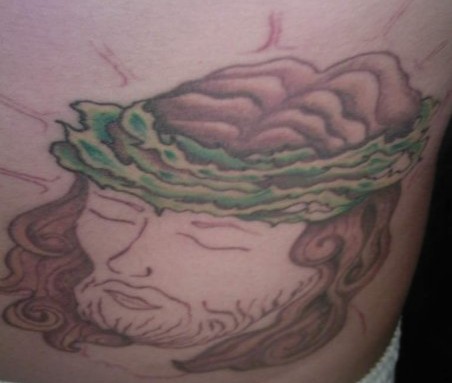
He explained that typical Thais views all tattoos — including religious icons — as taboo or related to criminals. He also noted that their respect for Buddha makes them especially prone to looking down on anyone with Buddha ink.
“No matter how beautiful the tattoo is. You have to keep in mind that Thailand is still a third-world country, and this provincial insight is certainly one of the main reasons,” he said.
“I believe that the Thais who shun those who have Buddha tattoos have a tendency to pass judgement really quickly, without trying to understand the true intentions of those who have the tattoo.”
When asked about bringing his own favorite deity into the toilet or bar on his body, he say no problem with it. He said, “Jesus came down to this world — a filthy world according to God’s standards — and hung out with misfits, prostitutes, tax collectors, and criminals. For me, it’s about the context of faith. The image itself really means nothing, but acts as a memorabilium that brings me closer to Him.”
Phra Maha Chanchai, a senior monk at central Bangkok’s Wat Pathum Wanaram temple, agreed with Kritthee on at least one point: that the images of deities mean nothing.
This modern monk had thoughts on the use of Buddha images that were more logical than emotional.
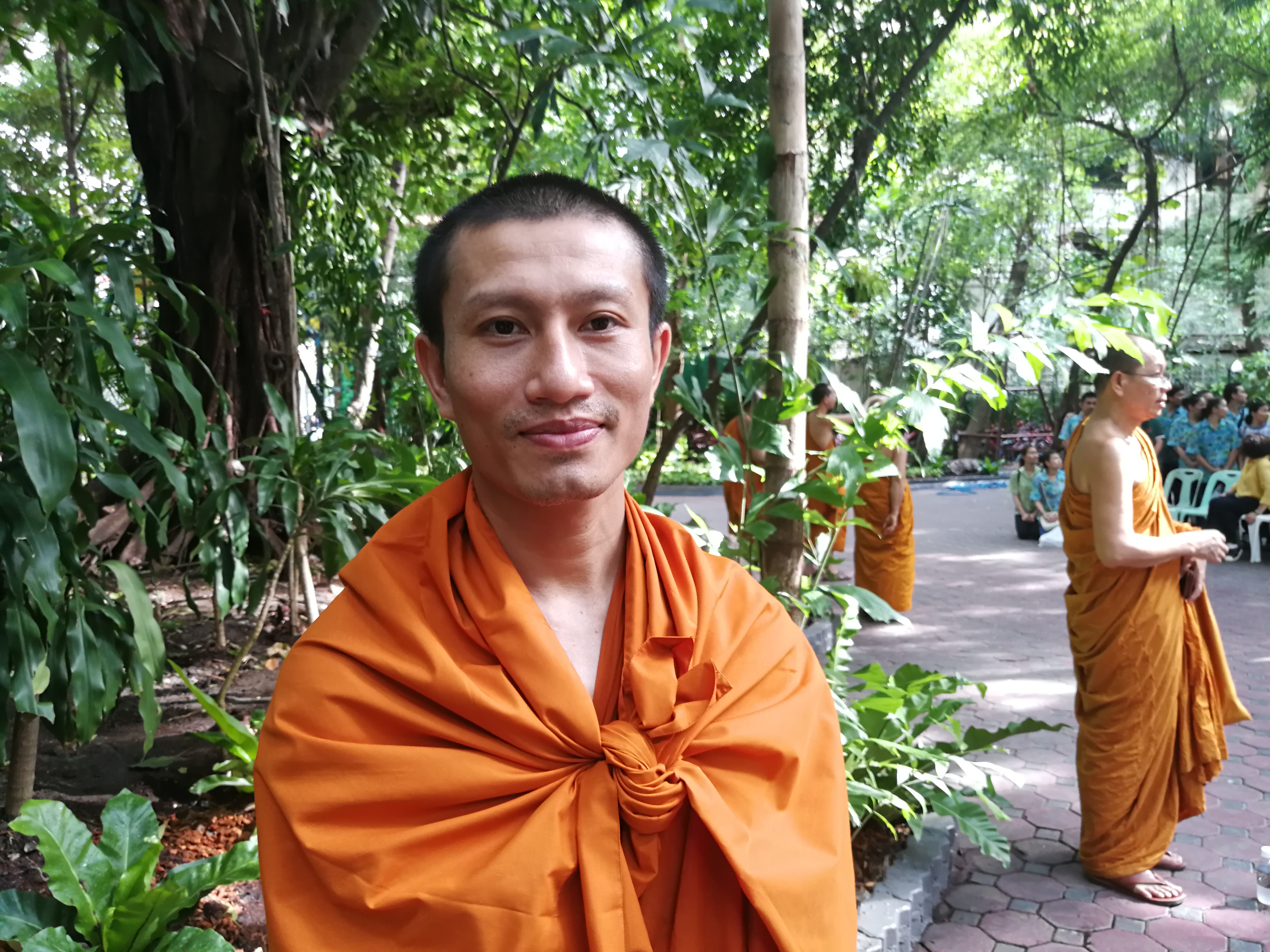
When I showed him images of Buddha flip-flops, floor rugs, bar decor, and tattoos, he said he doesn’t mind them.
“That’s only a symbol. From my point of view, the real Buddha is not in there, the real Buddha is inside you. When you wake him up, you understand everything clearly, and then you see that Buddha is just a symbol.”
That said, he understands why some people get up in arms about the use of the image.
“For beginners, they feel the image is the Buddha, but for advanced people or those with understanding, they dont mind, they don’t care.
“Buddha is not on a statue or anything else outside, it’s in my mind. Anything that happens outside my head, does not affect what happens inside.”
